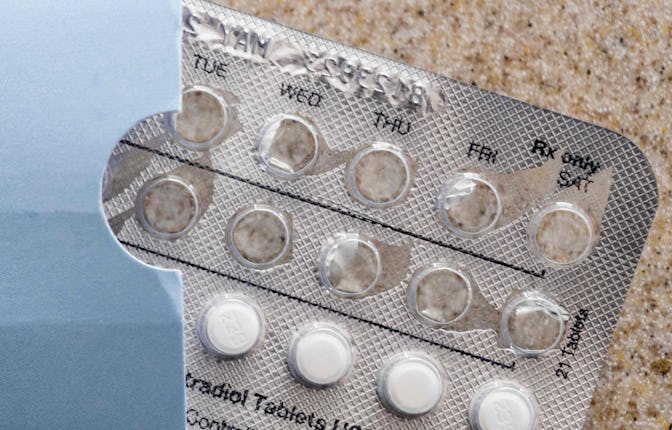You may finally be able to get birth control without a prescription
The FDA is considering a move that would put the U.S. in line with most other countries around the world.

The U.S. may pride itself on its medical advancements, but when it comes to actual health care, we’re far behind the international curve. See: This whole abortion ban situation, which reeks of troglodyte fascism. But while conservatives continue to work on stripping away reproductive health care rights, others are working to expand such rights wherever possible — and hoping not all governmental agencies are as dysfunctional and untrustworthy as SCOTUS. One agency in particular, the FDA, could allow some birth control pills to be available over-the-counter.
HRA Pharma, a French pharmaceutical company, announced this morning that it asked the FDA to authorize over-the-counter sales of its “mini” birth control pill, called Opill, The New York Times reported. While a novel concept here in the U.S., people in most of the world can access birth control pills over-the-counter and have been able to do so for decades, Reuters reported back in 2013. Doctors, such as members of the American College of Obstetricians and Gynecologists, have been supportive of the move from prescription-only to OTC birth control, for several years. HRA Pharma has been working on its request for six years, the Times reported.
Opill is a progestin-only birth control pill, which is why it’s considered a mini pill; some birth control pills, called “combination” pills, also contain estrogen. Progestin-only birth control pills are considered by experts to be safe and effective — and are, The Times noted, already used extensively in Britain. They aren’t prescribed as frequently as combination pills in the U.S. because they have to be taken at the same time every day and can cause side effects like unscheduled bleeding, per The Times. Still, experts think they should be available to all. “Oral contraceptives are safe, and they are safe medications for most people,” Jonas Swartz, an obstetrician and gynecologist at Duke University Health System, told The Times. Indeed.
Cost could be an issue, but a rep for HRA told The Times they’re committed to making Opill “very affordable for consumers.” Another company, Cadence, is also seeking FDA approval for an OTC birth control pill, but they haven’t yet finished the human clinical trials required as part of the approval process. Still, the fact that there’s more than one pill in the running bodes well for the future of oral contraception in the U.S.
Frédérique Welgryn, chief strategic operations and innovation officer at HRA Pharma, told The Washington Post that the FDA review process will likely take about 10 months — though many people are hoping the agency will expedite the process, given the circumstances.
Look, an OTC birth control pill obviously won’t solve all the problems caused by the reversal of Roe v. Wade, but it would definitely help prevent some unintended pregnancies. As Welgryn told The Post, “It will provide another option for managing reproductive health. But it is not the solution for abortion access.”
Not only that, but the progestin-only pill specifically has also been shown to be a promising treatment for endometriosis and may help relieve some of the symptoms of menopause and perimenopause. It’s also an important component of hormone therapy for some trans people. Basically, OTC birth control won’t fix America, but it could help ease some of our pain as we try to navigate through these new dark ages.